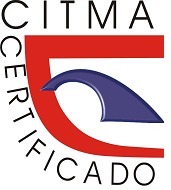Community intervention: Proposal of a scientific Journal to socialize studies in communities
Keywords:
Latin America and the Caribbean, community development, Open Journal Systems, scientific journal, Automated editorial management systemAbstract
Scientific journals are instances that contribute to the institutionalization and consolidation of particular scientific fields. The scientific field of social studies on community development in Latin America and the Caribbean has few serials open to acceptance and dialogue between dominant and emerging paradigms. The objectives of the study were: 1) to examine serial and scientific publications on the field of social studies about community development in Latin America and the Caribbean and 2) to design the Community Intervention journal to socialize field studies. To obtain results, the methods were used at the theoretical level: analytical - synthetic, historical - logical and systemic - structural; At the empirical level, documentary analysis and modeling were used. The characteristics of the scientific policies and main publications in Latin America and the Caribbean on community social studies were identified. The Community Intervention magazine and its information architecture were designed based on the use of the automated publishing management system Open Journal Systems. It was concluded that the scientific field of social studies on community development in the Region is poorly consolidated, an aspect that is evidenced in the limited presence of specialized journals. The most productive journals favored dominant paradigms of science, as an alternative, the design of the Community Intervention journal will allow for the socialization of studies corresponding to emerging paradigms.
References
Bourdieu, P. (1976). Le champ scientifique. Actes de la recherche en sciences sociales, 2(2), 88-104.
Bourdieu, P. (2008). Homo academicus. Buenos Aires: Siglo veintiuno.
García, R., Botella, F., y Marcos, M.C. (2010). Hacia la arquitectura de la información 3.0: pasado, presente y futuro. El Profesional de la Información, 19(4), 339-347. Doi: 10.3145/epi.2010.jul.02
Mejía, J. (2020). Epistemología de las políticas de ciencia y tecnología en América Latina. Cinta moebio, 67(2020), 14-25. Doi: http://dx.doi.org/10.4067/s0717-554x2020000100014
Paz, L. E., y Caramés, M. (2020). Concepciones para el análisis de campos científicos. TELOS: Revista de Estudios Interdisciplinarios en Ciencias Sociales, 22(1), 106-124. Doi: http://www.doi.org/10.36390/telos221.08
Paz, L. E., y Núñez, J. (2021). Agentes productores y socializadores del campo de los estudios sobre desarrollo comunitario en Latinoamérica. ACADEMO, 8(1), 42-54. Doi: http://dx.doi.org/10.30545/academo.2021.ene-jun.4
Pérez-Montoro, M. (2010). Arquitectura de la información en entornos Web. Madrid: Trea.
Repiso, R., Jiménez – Contreras, E., y Aguaded, I. (2017). Revistas Iberoamericanas de Educación en SciELO Citation Index y Emerging Source Citation Index. Revista Española de Documentación Científia, 40(4), 1-13. Doi: http://dx.doi.org/10.3989/redc.2017.4.1445
Riera, C. M., Paz, L. E., y Hernández, E. A. (2018). Consideraciones sobre el desarrollo comunitario. Investigación y Desarrollo, 26(1), 29-43.
Romero, M., Acosta, L., y Tejada, M. (2013). Ranking de revistas científicas en Latinoamérica mediante el índice h: estudio de caso Colombia. Revista Española de Documentación Científica, 36(1), 46-62. Doi: http://dx.doi.org/10.3989/redc.2013.1.876
Downloads
Published
How to Cite
Issue
Section
License
Copyright (c) 2022 Luis Ernesto Paz Enrique, Nadya Judafeet Jalil Vélez, Eduardo Alejandro Hernández Alfonso

This work is licensed under a Creative Commons Attribution-NonCommercial 4.0 International License.













